In Japanese, konata, sonata, anata, donata こなた, そなた, あなた, どなた are kosoado words related to direction, and then to person. They're a bit odd, because donata means "who," anata あなた is one of the various way to say "you" in Japanese, and the rest is archaic.
In various ways, they're similar to the words kochira, sochira, achira and dochira.
Usage
Before we talk about how konata, sonata, anata and donata are used in Japanese, it's important to keep in mind that what they mean literally differs vastly from how they're used in practice in modern Japanese.
Literal Translation
Literally, the words follow the same structure as other kosoado words:
- konata
こなた
This direction.
This way.- Near me.
- sonata
そなた
That direction.
That way.- Near you.
- anata
あなた
That direction.
That way.- Not near us.
- donata
どなた
What direction?
What way?
The usage above is archaic.
For reference, Karl Hermann Busse (1872 - 1918), a German poet, once wrote a poem that became famous in Japan. The Japanese version starts out like this:
- Yama no anata, sora tooku
山のあなた 空遠く
That way of the mountain, sky-far. - The original line in German is:
- Über den Bergen, weit zu wandern.
- An English translation of that:
- Over the mountains, far to travel.
- German to Japanese translation: 山のあなた - kangin.or.jp, accessed 2019-03-07.
- German to English translation: Over the mountains - lieder.net, accessed 2019-03-07.
As you can see, anata means "that way" in such that-way manner it ends up meaning "beyond," "over."
Nowadays, the word kanata 彼方 is used instead for this "beyond" meaning.
- Niji no Kanata ni
虹の彼方に
Over the Rainbow. (song.)- ♪ Somewhe~re over the rainbow~~ ♪
- Literally "that way of the rainbow."
- Kyoukai no Kanata
境界の彼方
Beyond the Boundary. (anime.)- Literally "that way of the boundary."
- See no-adjectives for reference.
Anyway, from this directional meaning of konata, sonata, anata and donata, was born a new meaning which referred instead to a person who was toward said direction:
- konata
こなた
This person (near me). - sonata
そなた
That person (near you). - anata
あなた
That person (not near you). - donata
どなた
What person?
This works in the same sense as saying "this side of the deal" in English. It's our side, not their side, which would instead be that side.
The words konata, sonata, anata and donata aren't the only words which refer to both people and directions. The words kochira, sochira, achira, and dochira also work pretty much the same way.
- konata, or kochira
こなた, or こちら
This direction.
This way.
This side.
This person. (near me.)
I. We. Us. - sonata, or sochira
そなた, or そちら
That direction. Way. Side. (near you.)
That person. (near you.)
You. - anata, or achira
あなた, or あちら
That direction. Way. Side. (not near us.)
That person. (not near us.)
He. She. - donata, or dochira
どなた, or どちら
What direction? Way? Side?
What person?
Who?
The difference is that using anata to say "that person" is archaic, so you won't see that happening in modern Japanese, while using achira the same way is not.
Also note that the word hou 方 means "way" in Japanese, while the kata 方, a different word written with the same kanji, means "person" instead.
In a sense, konata こなた, "this-person," is the same thing as kono kata この方, "this person." Because both words can mean "I" too.
- Context: a girl fights a beast-man lion, the king of animals.
- {ou ni idomu} koto no oroka-sa to kyoufu φ sono mi ni kizame
王に挑む事の愚かさと恐怖その身に刻め
Carve into [your] body the foolishness and fear of [the act that is] to challenge the king. - kyoufu, kyoufu nee...
恐怖 恐怖ねぇ・・・
Fear. Fear, huh? - umarete kono kata doumo sono {kyoufu tte} yatsu wo shiranakute ne
生まれてこの方どうもその恐怖って奴を知らなくてね
Since I was born, for some reason I've never know that "fear" you're talking about.- umarete kono kata
生まれてこの方
Born, this person.
Since this person was born. (he has never.)
Since I was born. (I've never.) - doumo
どうも
Anyhow.
In one way or another.
For some reason. (for some "how," for some "way," which the speaker doesn't know.) - sono kyoufu tte yatsu
その恐怖って奴
That "fear"-called thing.
That thing [someone] called "fear."
That "fear" thing [you mentioned].
- umarete kono kata
And ano kata あの方, anata あなた mean "that person (not near us)," and can also mean "he" or "she."
But, while sono kata その方 and sonata その方 mean "that person (near you)," the word sonata can mean "you," but sono kata can not.
The phrase sono kata always means "he" or "she." Someone close to the listener, who is not the listener himself. Or someone that has been mentioned in the conversation. [其の方(そのかた)の意味 - デジタル大辞泉 - dictionary.goo.ne.jp, 2019-03-09]
But don't feel sad!
Fortunately, kono hou この方, sono hou その方, ano hou あの方, literally "this way," "that way," can also mean "I," "you," "he," and "she," just like konata, sonata and anata.(デジタル大辞泉:其の方)
Donata Means "Who"
Since donata means "what person" it means "who" in Japanese. You'll often see it in the following way:
- donata desu ka?
どなたですか?
[It] is what person?
[It] is who?- Who is it?
- Who are you?
- Who is he?
- donata deshou ka?
どなたでしょうか?
[It] would be what person?
[It] would be who?- Who would it be?
- Who is it? Etc.
- Context: Dr. Tenma is greeted by someone whom he doesn't recognize.
- yaa, dokutaa Tenma......
やあ、Dr.テンマ・・・・・・
Hey, Doctor Tenma...... - ano......
あの・・・・・・
Erm...... - sumimasen, donata deshita kke......
すみません、どなたでしたっけ・・・・・・
Sorry, who are you, again.......
The above is a somewhat polite way of asking about somebody's identity, so you'd see it used in real life. In shounen anime, however, you're more likely to see "who" show up as translation of less polite phrases, like:
- dare?
誰?
Who [are you]? - dare da, omae!?
誰だお前!?
Who [are] you!?
どなた様
The word donata-sama どなた様 is a more polite variant of donata.
- donata-sama desu ka?
どなた様ですか?
Who [are] you?
The phrase above is similar to:
- dochira-sama desu ka?
どちら様ですか?
Who [are you]?
The ~sama ~様 honorific suffix may look weird at first, but it's commonly found in business speech as a way to politely address people. Example:
- kyaku 客
o-kyaku お客
o-kyaku-san お客さん
o-kyaku-sama お客様
Customer.- o____sama お〇〇様
Common polite pattern surrounding nouns.
- o____sama お〇〇様
そなた Means "You"
In Japanese, sonata そなた generally means "you."
This word is archaic so it isn't used in modern Japanese, but you may see it in period manga and anime. For instance: Tomoko from Katanagatari 刀語 uses sonata a lot.
- Context: a guy walks around selling wood.
- .........
- uro-uro
うろうろ
*wandering around* - oo!
おお!
Oh! - sonata wa maki-uri ka!?
そなたは薪売りか?
You firewood-selling?- Are you selling firewood?
I say sonata generally means "you" because it doesn't literally mean "you." It just happens to mean "you" most of the time.
To elaborate: sonata is literally a "person" who's "close" to the listener. The listener is, of course, the person with whom the speaker is talking to. "I'm talking to you." I'm the speaker. You are the listener.
Obviously, there's no person closer to you than yourself. You are at 0 millimeters of distance of yourself. So that's why sonata means "you" most of the time.
However, sometimes, sonata can refer to someone who's close to the listener that's not the listener himself. For example, say there's two guys walking around next to each other: one is your friend, the other one you don't know. In this case, you'd be able to talk to your friend and refer to the person beside him by sonata.
Well, I mean, you would, in the past, probably. Because, like I said, nobody uses sonata nowadays anymore. Nowadays a word of similar function would be sochira. For example:
- sochira wa donata desu ka?
そちらはどなたですか?
Toward your direction is who?- Who are you?
- Who is that person next to you?
Or, briefly:
Following the example of sonata, the word konata こなた could mean "I" in Japanese, or it could mean someone next to the speaker, so it could be "he" or "she" too, why not?
And anata あなた would be someone that's not close to the speaker and not close to the listener either. Someone who is far from both of them.
Anata Means "You"
One funny thing that happens is that anata あなた means "you" in Japanese now.
I know you must be feeling a little confused. After all, I was just elaborating how sonata means "you" because it refers to a person who's close to "you."
Conversely, by all logic and reason, anata shouldn't mean "you," because it refers to a person who is not close to "me" and not close to "you." If it is someone who is not close to you, how can it be you? You are the person who's closest to yourself! There's nobody closer to you than you!!!
Well, there's actually a very good explanation for this.
Japanese hates you.
And I don't mean the second person pronoun. I mean you. You, reading this article right now to learn Japanese.
One can only guess what in Kamisama's name had to happen in order for anata to go from "totally not you" to "actually, you." Probably, it happened because distance correlates to respect in Japanese. So someone thought that by using a word that sounded more distant to normal, it sounded more respectful. Or something like that. And it stuck.
Which, if true, is kind of ironic, because you shouldn't use anata あなた in Japanese. The normal thing to do is to refer to people by their names or titles.
- Context: a doctor talks to a patient in wheelchair, who is also a criminal.
- ningen wa yari-naoseru.
人間はやり直せる。
Humans can do-over.
Humans can [start again].
- yari-naoseru - potential verb.
- yari-naosu
やり直す
To do over.
To do something again. - yaru
やる
To do.
- ima kara demo osokunai......
いまからでも遅くない・・・・・・
Even from now isn't late......- You can still start over, it isn't too late to begin now.
- sensei......
先生・・・・・・
Doctor...... - sensei to ore,
anmari toshi
chigawanai kedo............
先生と俺、あんまり年違わないけど・・・・・・・・・・・・
[You] and me, [our] ages don't differ much, but.........- We're about the same age, but...
- sensei...... oyaji mitai da.
先生・・・・・・親父みたいだ。
[You]...... are like [my] father.
Well, none of that matters anyway. Point is: now anata means "you."
And the literal meaning of konata, sonata, anata are all archaic.
The only word of these three that is still used is anata, and it doesn't even mean what it originally meant!
Anata Also Means "Husband"
In Japanese, anata あなた also means "husband."
Why does it mean husband?
Why, indeed.
Probably because Japanese hates you.
Or, probably, because referring to each other by name sounds too formal, so some couples, when talking to each other, refer to each other by something other than names.
Some wives refer to their husbands by anata あなた.
There are also cases of the words that mean "father" and "mother" in Japanese, such as otousan お父さん and okaasan お母さん, papa パパ and mama ママ, being used to refer to one's husband or wife, respectively: because they're the father and mother of their children.
But that's not even the most ridiculous word of its class. The term goshujinsama ご主人様 can refer to one's husband, one's lord, a shop's owner, a slave's master, a pet's owner, a summoned beast's summoner, and more.
Kanji
The words konata, sonata, anata and donata are normally written with hiragana, but they do have kanji, so sometimes you may find them written with kanji.
| konata | 此方 |
|---|---|
| sonata | 其方 |
| anata | 彼方 貴方 貴男 貴女 |
| donata | 何方 |
There are differences between the various ways to spell with kanji the word anata あなた.
- anata
彼方
That person. (archaic meaning.) - anata
貴方
You. (modern meaning.)
Husband. (other modern meaning.) - anata
貴男
You. (sometimes spelled this way when "you" is male.) - anata
貴女
You. (sometimes spelled this way when "you" is female.)
The still-in-use kanata 彼方 is spelled the same way as the archaic anata 彼方.
Likewise, kochira, sochira, achira and dochira:
| kochira | 此方 |
|---|---|
| sochira | 其方 |
| achira | 彼方 |
| dochira | 何方 |
References
- 「こなた」、「そなた」、「あなた」、「どなた」という言葉がありますが、他のこそあど言葉と何か違う気がします。 - detail.chiebukuro.yahoo.co.jp, accessed 2019-03-07.
- 其の方(そのほう)の意味 - デジタル大辞泉 via dictionary.goo.ne.jp, 2019-03-09
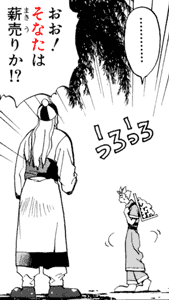

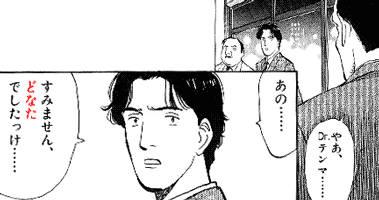
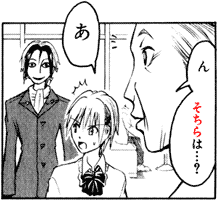
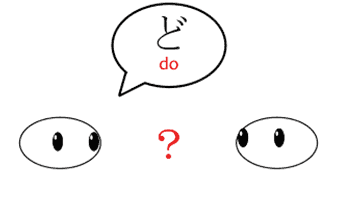
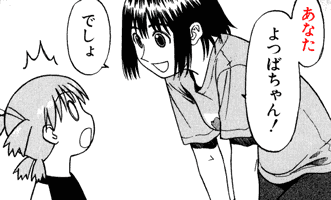
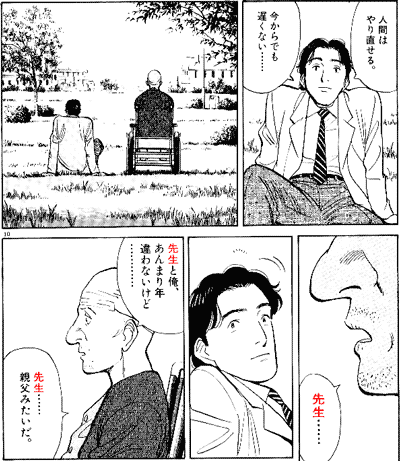
Hancok from One Piece also uses sonata quite often.
ReplyDelete